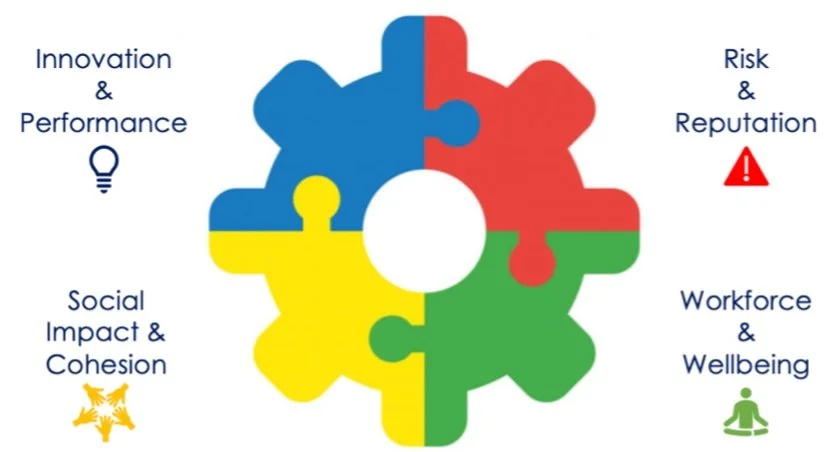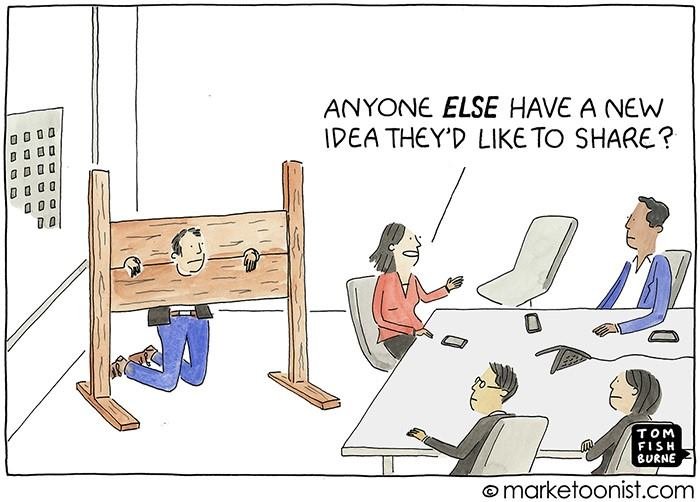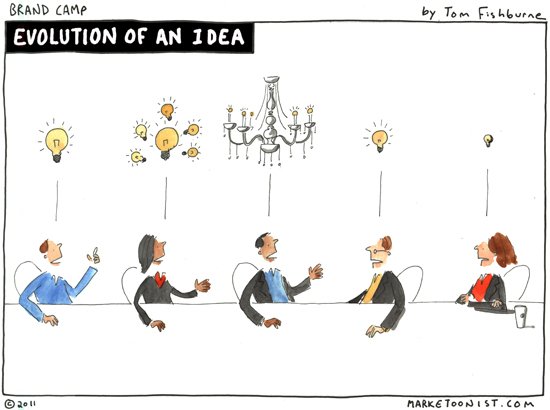How does Australia’s new employment law landscape supercharge your DEI agenda?
The Australian Government’s tranche of employment law updates, ‘hard codes’ the characteristics of the most productive and innovative workplaces, which in turn creates the most productive and innovative economies.
Whilst many organisations are meeting the tranche of new requirements with some consternation, there is both top and bottom line opportunity to be gained in an authentic implementation.
Organisations electing a minimum standards, compliance only approach, will miss the financial and cultural dividends and competitive advantage these new laws can deliver.
In an environment where 65% of Australian Human Resource Professionals are experiencing difficulties recruiting staff, these new laws offer an opportunity to design a modern workplace aligned with the expectations of post-covid workforces.(1)
Australia’s New Minimum Standards for a Modern Workplace
Whilst there’s a raft of changes in the Secure Jobs Better Pay Bill and updated Work Health and Safety and Respect @ Work Legislation, let’s focus on the elements which have the ability to assist the progression of your Diversity, Equity, Inclusion and Belonging agenda.
Included in the new legislation, is a duty to:
respond reasonably to requests for flexible work, for a number of under-represented and under-employed groups;
proactively create Psychosocially Safe and Respectful Workplaces.
As an HR professional with over 15 years experience in the tech sector, an industry which has been an early adopter of many of these workplace characteristics, I can attest to their effectiveness in mitigating talent shortages, and enabling cultures which create extraordinary innovation and growth.
The Tech Sector: a petrie dish for modern workplaces
As the creator of remote working technology, the tech industry was an early adopter of flexible working and what we now call ‘hybrid’ working.
Forced to come to grips with the 24/7 ‘always on’ modern world of work, we learned in real time, how to manage the increased risks of burnout (and other psychosocial hazards,) common in highly demanding, hybrid work environments. (2)
Attracting and Retaining Talent in a Tight Labour Market
By virtue of its flexible working environment, the sector created an industry where under-employed workers of diverse genders and generations, identities and abilities could obtain the flexibility they needed to access regular work. In so doing, the sector opened the door to new sources of capable and committed talent, which not only mitigated the industry’s labour shortages, but also became a source of competitive advantage.
Flexibility is not just a key driver of attraction and retention for today’s post-covid workforce, it’s also creates an opportunity for early adopter organisations, which will find themselves able to tap into a high value pool of diverse talent.(3)
In Australia’s 3.5% unemployed, is a significant percentage of under-employed people, willing and able to work - for employers willing to embrace the tech sector’s tried and tested flexibility formula.
Travers-Wolf
Characteristics of Productive, Modern Workplaces and Economies
Diversity in organisations has attracted much attention in the last decade, precisely because of its ability to generate competitive advantage in the form of:
innovation and growth
revenue and productivity
wellbeing and belonging
risk and reputation management.
Creating diverse teams and organisations is not just the right thing to do, it’s the smart thing to do.
It’s not by accident, the likes of Blackrock, State Street and other leading international fund managers have put organisations on notice - to secure their ongoing investment - they must have robust diversity and inclusion strategies. Without them, their industry performance is likely to be suboptimal.
Although there are still many areas today where tech can improve its diversity, the sector nonetheless realised their strategy wouldn’t work in the longer term, if they didn’t also have a safe, respectful and inclusive culture for everyone equally.
Today’s Workforce expect Safe, Respectful and Inclusive Leaders and Cultures. (4)
Inclusion: the secret ingredient in the tech sector’s innovation and growth
Contrary to popular belief, it wasn’t free food, yoga or table tennis which unlocked innovation and impact in the tech sector. Inclusive leaders who created diverse teams, with high respect and psychological safety, were the key.
Inclusion is critical to the effectiveness of all teams, but it’s particularly important in diverse teams.
The sector’s focus on psychological safety was based on the learnings from Google, i.e. the more diverse perspectives which existed in teams characterised by inclusion, the more innovation and growth the organisation experienced. (5)
Teams high in psychological safety are an “incubator of innovation and a sanctuary of safety”. (6)
Inclusion unlocks Wellbeing and Belonging
In an unexpected, but welcome bonus, the tech sector also learned individuals and teams thrived, and experienced high wellbeing and belonging in these environments. Whilst the sector wasn’t aware of this at the time, we now know Psychological Safety is an effective antidote to the many psychosocial risk factors , inherent in modern workplaces.(7)
With wellbeing and belonging surviving rather than thriving in our post-covid workplaces, Inclusion offers an opportunity to offer more than a ‘tick box’ response.
The Tech sector unlocked a cultural formula, where diverse workforces could thrive, and create competitive advantage in the process.
Modern Laws for a Modern World
With the most productive economies in the world characterised by innovation and adaptability, collaborative work environments; modern leadership and work life balance, it’s clear the Australian Government’s tranche of employment legislation is about creating more than just a fairer Australia. It’s also aimed at creating a more productive and innovative Australia.(8)
At its heart, the goal of the new legislation is creating modern workplaces, for a modern world.
Just a note for those understandably concerned about any correlation with tech’s recent boom to bust.
The lessons from high profile disasters in other industries confirms it’s precisely the lack of psychological safety, which prevented those with the knowledge of the risks from informing those with the power, to do something about them.
Had the pressure been as strong to tell people in power what they needed to hear, rather than what they wanted to hear, these full blown crises would likely have been mitigated or even averted altogether.
“Psychological Safety doesn’t mean that everybody is nice all the time. It means that you embrace the conflict and you speak up, knowing that your team has your back, and you have their backs”
David Altman, COO, Centre for Creative Leadership
At I LEAD Consulting we’re on a mission to simplify Diversity and Inclusion for Leaders and Teams.
PRACTICE INCLUSION | EMBRACE DIVERSITY | ACTIVATE ALLIES
1: AHRI; 2: Worksafe Australia; 3: McKinsey; 4: LinkedIn; 5. Clark; 6: Clark; 7: McQuaid & Page; 8: WEF; ILO; OECD; Journal of Economic Perspectives, Journal of Organizational Behavior, HBR





